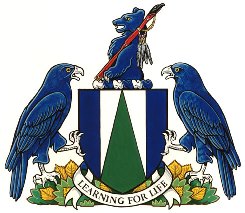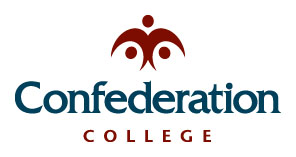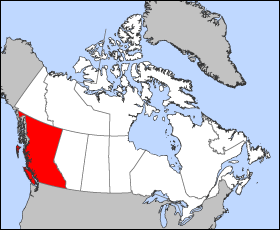
Cape Breton University (CBU) is a public, co-ed, primarily undergraduate university located in Sydney, Nova Scotia, Canada. It is the only post-secondary degree-granting institution within the Cape Breton Regional Municipality and on Cape Breton Island. The university is enabled by the Cape Breton University Act passed by the Nova Scotia House of Assembly. Prior to this, CBU was enabled by the University College of Cape Breton Act (amended). The University College of Cape Breton's Coat of Arms were registered with the Canadian Heraldic Authority on May 27, 1995.

A scholarship is a form of financial aid awarded to students for further education. Generally, scholarships are awarded based on a set of criteria such as academic merit, diversity and inclusion, athletic skill, and financial need.
Founded in Toronto in 1988, the Loran Scholars Foundation is a national charitable organization awarding scholarships for students entering university in Canada. Loran Scholars receive the country's largest undergraduate merit award on the basis of character, commitment to service and leadership potential.

Athabasca University (AU) is a Canadian public research university that primarily operates through online distance education. Founded in 1970, it is one of four comprehensive academic and research universities in Alberta, and was the first Canadian university to specialize in distance education.

Confederation College is a provincially funded college of applied arts and technology in Thunder Bay, Ontario, Canada. It was established in 1967, and has campuses in Dryden, Fort Frances, Greenstone, Kenora, Marathon, Sioux Lookout, Red Lake and Wawa. The college serves an area of approximately 550,000 square kilometres. It is the only public college servicing Northwestern Ontario.

Algonquin College of Applied Arts and Technology is a publicly funded English-language college located in Ottawa, Ontario, Canada. The college serves the National Capital Region and the outlying areas of Eastern Ontario, Western Quebec, and Upstate New York. The college has three campuses, all in Ontario: a primary campus located in Ottawa, and secondary campuses located in Perth and Pembroke. The college offers bachelor's degrees, diplomas, and certificates in a range of disciplines and specialties. It has been ranked among the Top 50 Research Colleges in Canada and has been recognized as one of Canada's top innovation leaders. The enabling legislation is the Ministry of Training, Colleges and Universities Act. It is a member of Polytechnics Canada.

The Canadian Alliance of Student Associations (CASA) is a federally focused student advocacy organization. CASA currently has 24 members, who represent over 275,000 students from across Canada. With a formal partnership with the Quebec Student Union, CASA represents 365,000 students. CASA works towards an accessible, affordable, innovative and high-quality post-secondary education system.
Student financial aid in the United States is funding that is available exclusively to students attending a post-secondary educational institution in the United States. This funding is used to assist in covering the many costs incurred in the pursuit of post-secondary education. Financial aid is available from federal and state governments, educational institutions, and private organizations. It can be awarded in the form of grants, loans, work-study, and scholarships. In order to apply for federal financial aid, students must first complete the Free Application for Federal Student Aid (FAFSA).
The Gabriel Dumont Institute (GDI), formally the Gabriel Dumont Institute of Native Studies and Applied Research Inc., is a non-profit corporation serving the educational and cultural needs of the Saskatchewan Métis and Non-Status Indian community, and is the officially-designated education arm of the Métis Nation—Saskatchewan (MN-S).
Lambton College is a publicly funded college in Sarnia, Ontario, Canada. It has approximately 3,500 full-time students, 6,500 part-time students and 3,500 international students worldwide. Lambton College also has campuses in Mississauga and Toronto.

The First Nations University of Canada is a post-secondary institution and federated college of the University of Regina, based in the Canadian province of Saskatchewan. FNUniv operates three campuses within the province, in Prince Albert, Regina, and Saskatoon. The university offers academic programs in business, the humanities, social sciences, and sciences; including a number of programs focused around aboriginal practices.
Olds College of Agriculture & Technology is an Alberta public post-secondary institution located in Olds, Alberta, established in 1913 as Olds Agricultural College.
Northern Lights College (NLC) is an institution that provides post-secondary education to residents of Northern British Columbia. It currently has campuses and access centers in eight communities across the northern third of British Columbia, with Regional Administration located on the Dawson Creek campus. NLC has a working agreement with the University of Northern British Columbia. The college President and CEO is Dr. Bryn Kulmatycki.

Lakeland College is a post-secondary college in Alberta, Canada. It is publicly funded, and maintains two campuses in Vermilion and Lloydminster. Lakeland serves over 7,000 students through the academic year with 2,223 studying full- and part-time.
The Millennium Research Program of the Canada Millennium Scholarship Foundation was launched in 2001 to assist the Foundation in carrying out its mandate to improve access to post-secondary education in Canada and provide students with the educational opportunities they need to prepare themselves for the future. The Research Program advances the study of barriers to post-secondary education and the impact of policies and programs designed to alleviate them. It ensures that policy-making and public discussion about opportunities in higher education in Canada can be informed by rigorous analysis and empirical evidence.

Higher education in New Brunswick refers to education provided by higher education institutions in the Canadian province of New Brunswick. Higher education has a rich history in New Brunswick. The first English-language university in Canada was the University of New Brunswick. Mount Allison University was the first in the British Empire to award a baccalaureate to a woman, Grace Annie Lockhart, B.Sc. in 1875. Education is the responsibility of the provinces in Canada and there is no federal ministry governing it.

Higher education in British Columbia is delivered by 25 publicly funded institutions that are composed of eleven universities, eleven colleges, and three institutes. This is in addition to three private universities, five private colleges, and six theological colleges. There are also an extensive number of private career institutes and colleges. Over 297,000 students were enrolled in post-secondary institutions in British Columbia in the 2019-2020 academic year.
The Lambda Foundation, officially the Lambda Scholarship Foundation Canada, is a registered Canadian charity with the mission of creating scholarships, awards, and bursaries in support of lesbian, gay, bisexual, transgender, and intersex (LGBT) studies, and education and awareness, in advancement of equality and human rights.
Kenjgewin Teg (KT) is an Aboriginal-owned and controlled post-secondary institution at M'Chigeeng First Nation, on Mnidoo Mnising Manitoulin Island, Ontario, Canada. In the Ojibwe language, Kenjgewin Teg means a place of knowledge. Kenjgewin Teg provides educational initiatives to its member population of 6,800+ people and to students in the surrounding area. Programs are offered to its eight-member First Nations:
The Jack Kent Cooke Foundation is the largest scholarship provider in the United States. The private, independent foundation is dedicated to advancing the education of exceptionally promising students who have financial need. It offers the largest scholarships in the U.S., comprehensive counseling and other support services to students from 8th grade to graduate school. Since 2000 it has awarded over $175 million in scholarships to nearly 2,300 students and more than $97 million in grants to organizations that serve outstanding low-income students.










